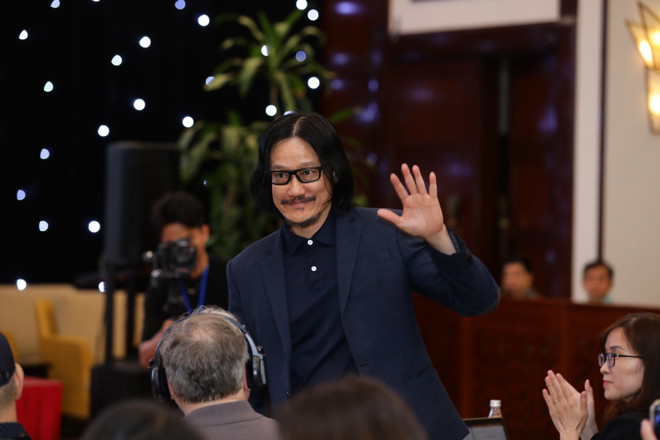
Focusing only on talent will overshadow the factors that make greatness in cinema. That is the sharing of Mr. Tony Bui - lecturer at Columbia University, New York in the framework of the workshop on Developing and Nurturing Cinema Talent, part of the Da Nang Asian Film Festival (DANAFF).
Along with his opinion, many other shares from experts show that talent is very necessary in the development of cinema. But at the same time, to develop, cinema needs more than just talent.
Speaking at the conference, filmmaker Tony Bui commented that we are often attracted to the concept of raw talent because it is impressive and inspiring. “It makes for a good story. But over time, I found that story is incomplete. And in many ways, it is dangerous.”
The director of the film “Three Seasons” said that he himself met many young and potential filmmakers in Vietnam, Asia, as well as in the US. But without community, process or interaction, they often fall into a deadlock, lose momentum and then stop. If we only believe in raw talent, we will ignore important factors: training process, community, feedback, failure and mentorship, companionship.
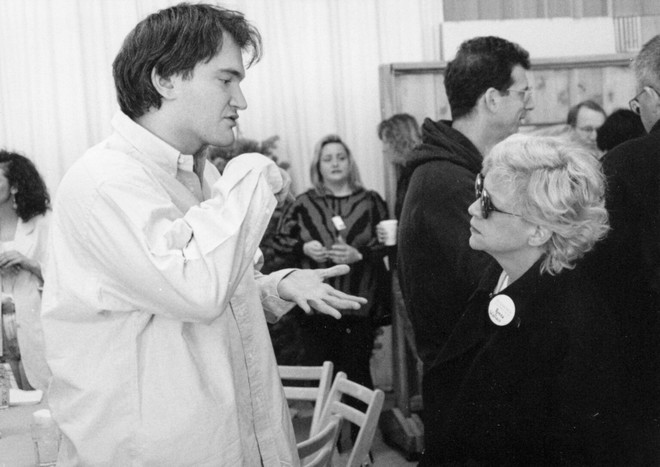
The director also cited the example of Sundance Labs - a multi-class model of the Sundance Film Festival (USA), which has nurtured internationally recognized directors and screenwriters such as Quentin Tarantino, Chloé Zhao, Ryan Coogler, Barry Jenkins.
This class is curated around a unique voice rather than a perfect script. Directing courses help writers dig inward, rewriting based on a core question rather than mechanical editing.
Mr. Tony Bui called for investment in screenwriting labs to help directors have structure and create a community to nurture talent, instead of waiting for "geniuses to appear on their own": "We don't need to wait for Sundance, but can build our own Lab, from the country, history and voice of Vietnam, towards the world stage."
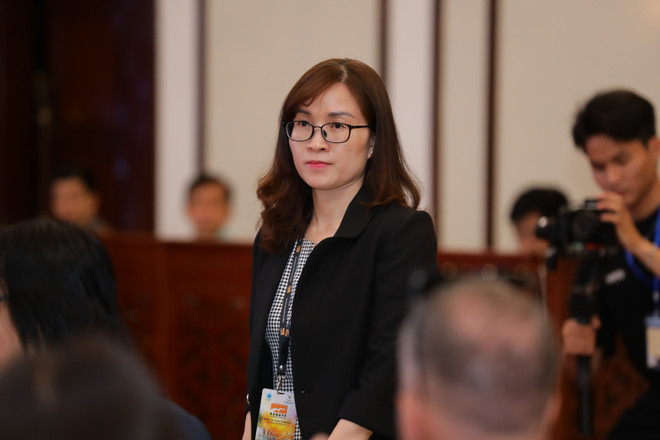
Talent is not the only factor that helps promote cinema in particular and art in general. Associate Professor, Dr. Hoang Cam Giang (Head of the Department of Art Studies, Faculty of Literature, Hanoi University of Social Sciences and Humanities) believes that nurturing the audience's ability to perceive is equally important.
Ms. Cam Giang affirmed that the overall goal of current art and cinema training courses is for viewers to not only be led by the media according to the producer's intentions. Filmmakers, in addition to making works, also have the responsibility to connect, disseminate and share cinema knowledge with the audience.
“This is the key factor: the potential for filmmakers to reach a new, quality audience. This new audience will create a new ecosystem for Vietnamese cinema, and only when there is a complete ecosystem can Vietnamese cinema develop well, not just the issue of scripts, directors, actors or critical theory.”
Contributing his opinion at the workshop, producer and international project expert Chulsoo Charles Kim - Commissioner of the Korea International Broadcast Film Festival (KISF) - gave his perspective on the important factors in international cooperation with Vietnamese projects.
He said Vietnamese cinema is developing in two directions: traditional film school students are entering feature films, while social media influencers dominate the short film and commercial genres, creating conflicts but also opening up opportunities for cooperation.
Vietnamese commercial films still mainly focus on comedy and horror – genres that are difficult to export internationally. His advice is to diversify the genres, including horror, romance, and coming-of-age films to make it easier to reach international audiences.
“South Korea is a prime example, with K-pop and K-drama being successful globally thanks to their emotional universality and export strategy. However, Korean cinema has struggled to maintain momentum after Parasite, with few films reaching the same international level. Many filmmakers have faced financial and production difficulties,” he shared.
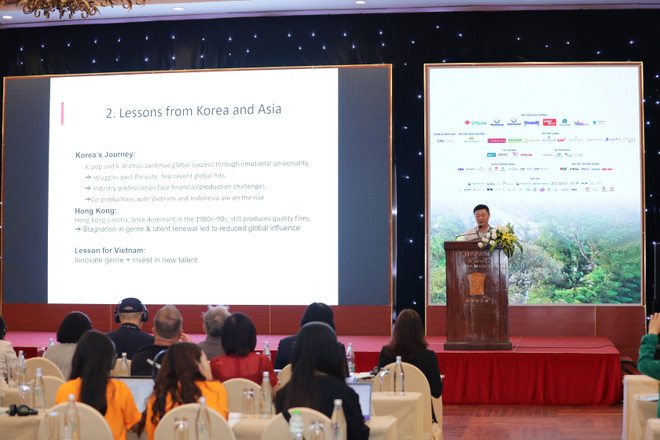
Currently, Korea is seeking production cooperation with Vietnam and Indonesia to expand its market and take advantage of creative potential.
Therefore, for sustainable development, this producer believes that Vietnam needs to build a model of production cooperation with Asian industries, establish a systematic training system for actors, screenwriters, directors, format content suitable for Netflix, Disney+, TikTok, and create universal stories about identity, family, and justice.
In addition, Vietnam needs to innovate education, combine technical skills and market knowledge, support policies for international cooperation and distribution, build a long-term vision to become an Asian cinema center, combining Vietnamese identity with global storytelling skills./.
Source: https://www.vietnamplus.vn/phat-trien-tai-nang-trong-dien-anh-chi-tai-nang-thoi-la-chua-du-post1047532.vnp


![[Photo] Opening of the World Cultural Festival in Hanoi](https://vphoto.vietnam.vn/thumb/1200x675/vietnam/resource/IMAGE/2025/10/10/1760113426728_ndo_br_lehoi-khaimac-jpg.webp)


![[Photo] Unique Phu Gia horse hat weaving craft](https://vphoto.vietnam.vn/thumb/1200x675/vietnam/resource/IMAGE/2025/10/10/1760084018320_ndo_br_01-jpg.webp)

![[Photo] Ho Chi Minh City is brilliant with flags and flowers on the eve of the 1st Party Congress, term 2025-2030](https://vphoto.vietnam.vn/thumb/1200x675/vietnam/resource/IMAGE/2025/10/10/1760102923219_ndo_br_thiet-ke-chua-co-ten-43-png.webp)
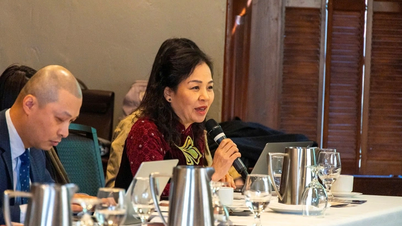

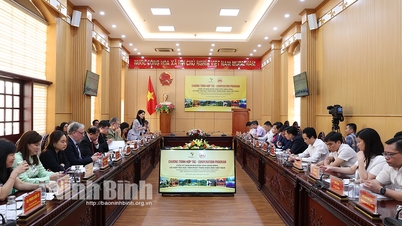








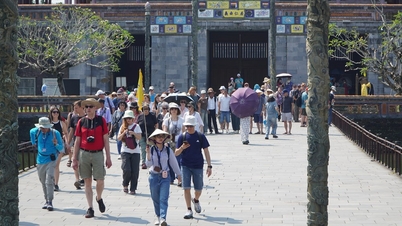






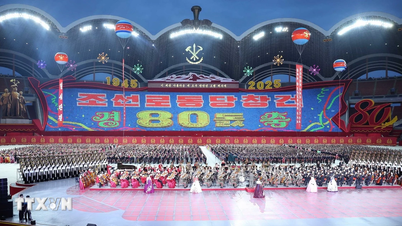
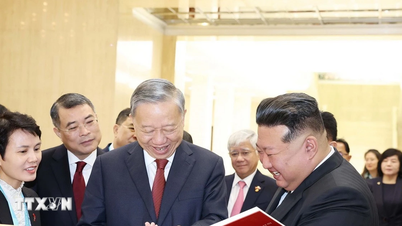
















































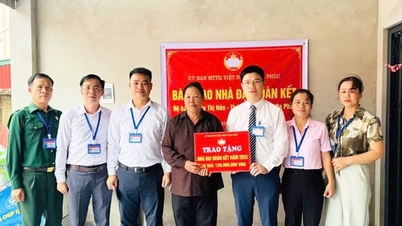








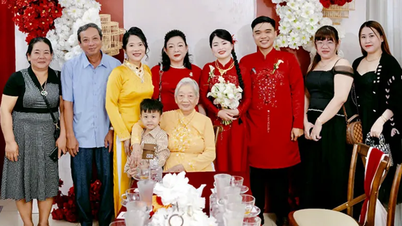














Comment (0)